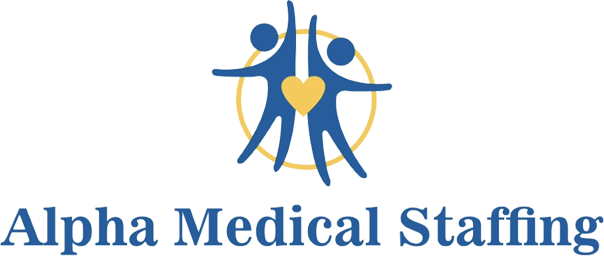Introduction
Choosing the best agency is essential when it comes to working as a locum tenens healthcare practitioner. In order to match temporary jobs with healthcare practitioners’ capabilities and preferences, locums agencies are essential. As someone with expertise in the locums sector, I am aware of how crucial it is to choose an agency that shares my beliefs and professional aspirations. I’ll offer my perspectives on how I pick which locums agencies to partner with in this article, giving you a thorough road map to help you decide.
Researching Locums Agencies
It’s crucial to thoroughly investigate locums agencies before starting the selecting process. Your decision-making will be based on your knowledge of the locums market and the possibilities that are available.
Exploring online resources and directories: A plethora of information may be found on online platforms and directories that are expressly geared towards the locums business. You can search through many different possibilities on websites like Locums.com and LocumTenens.com, which provide thorough listings of locums firms.
Reading reviews and testimonials: Read the reviews and endorsements of other medical professionals who have dealt with various companies. These first-hand accounts can offer insightful information about the agency’s standing, degree of assistance, and general level of satisfaction.
Evaluating agency credentials and certifications: Select locums agencies with the necessary accreditations and credentials. Organisations like the National Association of Locum Tenens Organisations (NALTO) certifies companies that uphold strict industry standards and moral principles.
Assessing Agency Reputation and Experience
Evaluating a locums agency’s reputation within the medical community is one of the most important criteria. A trustworthy organisation will have a proven track record and enjoy the respect of both healthcare institutions and specialists.
Analyzing agency reputation within the healthcare industry: Investigate the agency’s reputation among medical facilities and providers. Ask coworkers or dependable professionals who have already worked with the agency for their opinions.
Considering the agency’s track record and years of experience: A reputable organisation with years of expertise exhibits stability and dependability. Look for placement services that have a long track record of successfully placing medical professionals in a range of specialisations and regions.
Reviewing client feedback and satisfaction ratings: Customers can share their experiences through rating and feedback mechanisms on online platforms. Take into account companies who consistently receive good reviews and have high client satisfaction rates.
Range of Specialties and Opportunities
Another important factor to take into account is the variety of specialties and prospects provided by a locums agency. Your experience as a locum tenens will be improved if you can find an agency that offers a wide variety of assignments and caters to your particular area of expertise.
Examining the agency’s specialization areas: Make sure the agency has a solid network of opportunities in your field and aligns with your speciality. The agency ought to provide assignments that are appropriate for your abilities, whether they are in primary care, emergency medicine, or another specialised field.
Assessing the variety of locums assignments available: Look for agencies that offer a variety of locums assignments in hospitals, clinics, and private practises, among other healthcare settings. You will be able to investigate various practise settings and locations thanks to the diversity of chances that are available.
Evaluating the agency’s network of healthcare facilities and geographic coverage: A trustworthy agency will be connected to trustworthy medical centres all around the country. Consider hiring from agencies with a large network to improve your chances of landing jobs in the facilities and places you want.
Compensation and Benefits
When selecting a locums agency, fair and competitive compensation is an important consideration. In order to secure a satisfying financial arrangement, it is crucial to comprehend the agency’s payment structure and the benefits it provides.
Researching the agency’s compensation rates and payment procedures: To evaluate an agency’s market competitiveness, compare the remuneration rates it offers. Take into account organisations that offer transparent payment processes and reasonable recompense for your services.
Understanding benefits packages, including healthcare and retirement plans: Consider the agency’s perk packages in addition to the monetary compensation that is being offered. Examine the level of retirement plans, health insurance, and other benefits that affect your overall happiness and well-being at work.
Comparing agency commission rates and incentives: For their services, some locums agencies charge commissions or fees. Review the commission fees and any other rewards the agency may be offering. Think into how commission rates compare to the help and opportunities they offer.
Support and Communication
For a locums experience to be successful, the agency must provide effective assistance and communication. Your level of pleasure and the efficiency of your assignments can be significantly impacted by evaluating the amount of support and availability of a committed consultant.
Evaluating the agency’s level of support and assistance: Look for organisations that provide thorough assistance throughout the locums process. Finding acceptable assignments and addressing any difficulties can be significantly impacted by a committed adviser that comprehends your demands and preferences.
Assessing the availability of a dedicated consultant: The locums process will be walked you through by a dedicated consultant if the agency is reputable. This consultant should be simple to reach, receptive to your questions, and able to deliver prompt assistance when required.
Reviewing communication channels and response times: In the field of locums, communication is essential. Consider hiring organisations that provide numerous means of contact, including phone, email, and online chat, and make sure they have a track record of providing quick and helpful responses.
Credentialing and Compliance
Procedures for compliance and credentialing are crucial components of locums’ job. Patient safety and the standard of care you provide depend on the agency adhering to strict credentialing procedures and maintaining compliance with laws.
Ensuring the agency follows strict credentialing and compliance processes: Ascertain whether the agency follows industry norms and requirements by asking about its credentialing practises. Before assigning healthcare experts to tasks, make sure they thoroughly verify their licensure, certificates, and pertinent documentation.
Verifying licensure and certification requirements: Verify if the organisation has effective mechanisms in place to check the credentials of healthcare professionals, such as licences and certifications. This ensures that all locums assignments adhere to all applicable laws and regulations.
Understanding the agency’s commitment to patient safety and quality care: Ask about the organization’s rules and regulations for providing high-quality, safe treatment for patients. Patient welfare should be given top priority, and a respected organisation should make sure that all healthcare providers adhere to strict standards of professionalism and competence.
Technology and Resources
Technology and resources offered by locums agencies can significantly improve the whole locums experience in the current digital era. Analyse the technological prowess of the organisation and the accessibility of tools that make the administrative portions of your responsibilities easier.
Assessing the agency’s use of technology and online platforms: Look for organisations that use technology to organise tasks like assignment hunting, paperwork, and scheduling. Online platforms and user-friendly interfaces can greatly increase productivity and usability.
Reviewing the availability of resources for locums professionals: Ask the agency about the resources available to assist professionals working as locums. This can entail having access to educational resources, clinical recommendations, or chances for professional growth.
Considering user-friendly interfaces and mobile applications: You may obtain critical information and updates on the go with the help of businesses who provide mobile applications or responsive websites. It is simpler to navigate assignments, schedules, and communication tools when the interface is user-friendly.
Contract Flexibility and Terms
Your experience working as a locum tenens can be significantly impacted by flexible contract terms and assignment alternatives. Analyse the agency’s contract options and their openness to meeting your unique requirements and preferences.
Understanding contract lengths and termination policies: Take into account the agency’s flexibility in terms of contract terms and termination procedures. It’s critical to have the discretion to select jobs in accordance with your schedule and career objectives. Look for companies that provide both short- and long-term tasks as well as a variety of contract possibilities.
Assessing flexibility in terms of location and assignment duration: Check to see if the agency gives you the freedom to choose the locations you want to operate in. While some agencies may impose restrictions, others may provide you more options when it comes to finding assignments in the places you want to go.
Reviewing the agency’s contract negotiation process: Ask the agency whether they are open to modifying the contract’s provisions to better fit your requirements. To create a win-win arrangement, a credible agency will be receptive to conversations about pay, scheduling, and other contractual provisions.
Professional Development and Continuing Education
Even as a locum tenens healthcare practitioner, making an investment in your professional development is crucial. Select a company that promotes career progression possibilities and cherishes your lifelong learning.
Evaluating the agency’s commitment to professional growth: Ask about the agency’s commitment to continued education and professional development. Look for organisations that offer resources, such as seminars, workshops, or online courses, to help you advance your knowledge and abilities.
Assessing opportunities for continuing education and training: Check to see if the organisation provides access to continuing education opportunities or pays for pertinent courses. This indicates their dedication to your continuous education and growth.
Reviewing mentorship programs and career advancement support: Mentorship programmes can be quite helpful for people working as locum tenens, especially those just getting started. Find out whether the agency offers mentorship possibilities or career progression advice to assist you in navigating your locums career path.
Making the Final Decision
It’s time to choose which locums agency to partner with after carefully weighing all the aforementioned considerations. Here are some essential actions to remember:
Summarizing the key factors to consider when choosing a locums agency: Think back on the key ideas covered in your research. As important factors to assess, take into account the agency’s reputation, specialist areas, remuneration, support, and assets.
Highlighting personal preferences and priorities: When making decisions, keep in mind your own priorities and preferences. Are you seeking for location flexibility? Do you place more importance on a helpful consultant or a particular area of expertise? Make clear what is most important to you.
Sharing personal experiences and lessons learned: Make use of your personal experience dealing with staffing firms. Share your prior experiences and how they affected your choice-making if you have worked with particular agencies. Give examples of what you did that worked effectively and any lessons you learnt along the way.
Conclusion
Your career as a locum tenens and general happiness may be affected by your choice of the best agency. You can make a decision that is in line with your professional goals and ideals by completing thorough research, evaluating important aspects, and taking into account your own preferences. Keep in mind that the ideal agency will help your development and success as a healthcare professional in addition to offering you rewarding locums jobs.
Frequently Asked Questions (FAQs)
How do I know if a locums agency is reputable?
Look for agencies with a strong reputation within the healthcare industry, positive client feedback, and high satisfaction ratings. Research their track record and years of experience.
What should I consider when evaluating compensation and benefits?
Research the agency’s compensation rates, payment procedures, and benefits packages. Consider the overall financial package, including healthcare coverage, retirement plans, and additional incentives.
Is it necessary to work with multiple locums agencies?
Working with multiple agencies can increase your chances of finding suitable assignments and exploring different opportunities. However, it’s important to balance workload and manage relationships effectively.
What are the advantages of choosing an agency with a wide range of specialties?
An agency with a diverse range of specialties provides more options for assignments that match your skills and interests. It allows you to explore different practice areas and broaden your professional experience.
How can I ensure a smooth credentialing and compliance process?
Choose an agency that follows strict credentialing processes and emphasizes compliance. Ensure they verify licensure and certifications and prioritize patient safety and quality care. Communicate any concerns or questions regarding the process upfront to ensure a smooth experience.
Keep in mind that it’s crucial to put your requirements, interests, and professional development first when selecting a locums firm. You can make a well-informed choice that creates the framework for a fruitful and enjoyable locums job by taking these elements into account.










